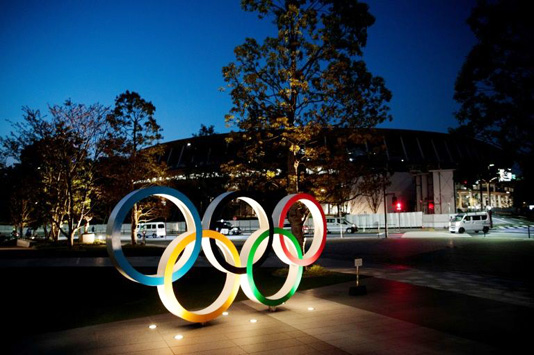Japanese Olympic volunteer Ami Endo has dreamed for years of seeing the Games, but despite her crushing disappointment over Tokyo 2020 being postponed, she is determined to be part of next year’s edition.It’s a “once-in-a-lifetime event,” the 19-year-old university student told AFP not long after Games were postponed by a year over the coronavirus pandemic.
Endo isn’t even considering joining fellow students in getting a summer job next year, determined to volunteer for the postponed Games.
“I’ll gain something that money can’t buy,” she said.
Across Japan, tens of thousands of volunteers, and hundreds of villages, towns and cities have registered to help or host athletes and participants at the Tokyo 2020 Games.
For many, the delay of the Games came as a personal blow, after sometimes years of preparations and dreaming.
“Ever since I was in elementary school, I’d hoped Japan would be a host,” said Endo, who is studying business and public policy, and said she overcame her disappointment by thinking about the many others who were also seeing their dreams delayed.
Chizuko Yabusaki, 63, was a child when Japan last hosted the Games, and remembers watching the 1964 opening ceremony in rare colour television.
“I remember the scene vividly, and the excitement when we cheered for the marathon runners,” she told AFP.
She became an Olympic volunteer hoping to use her Spanish and Portuguese skills and relive her experience as a World Cup volunteer in 2002.
“There was a sense of fun and a swell of emotion you could only feel on the ground,” she said.
But she sympathises with the decision to delay, and said she would “definitely” participate next year, adding the postponement will give her more time with his grandchildren this summer.
– ‘A real shame’ –
In the town of Sagamihara, near Tokyo, local officials had spent more than two years preparing to host athletes from Brazil and Canada.
Even before the postponement, they were left reeling when Canada announced it would no longer send athletes to any Games held this year because of the virus.
“We think Canada’s national Olympics Committee made the final decision by prioritising its athletes,” said Hisashi Kikuchihara, pre-Games manager at the city’s planning department.
“But from our standpoint, it was a real shame.”
The Canadian decision was part of a wave of pressure that forced the eventual postponement of the Games, now scheduled to open a year later on July 23, 2021.
But Sagamihara officials said they breathed a sigh of relief when both Canada and Brazil confirmed they would stick with the town next year.
Residents have already rolled out the red carpet for Canadian athletes, including the national youth rowing team, which was greeted by hundreds of cheering locals when they visited for championships last year.
“We thought hospitality should begin with their arrival,” community leader Zenzaburo Miyano told AFP.
“We were aiming for at least 300 people to line the 150 metres (yards) from the public road to the entrance (of their hotel) but more than 400 showed up.”
“It was wonderful, superb,” he said.
Some locals offered athletes traditional meals and even travelled to Tokyo to cheer them on during competition, including Yoshimi Koike.
“I had few connections (with Canada) before… But I’ve developed quite an interest,” he said.
He and his wife Kazuyo also hosted athletes for a meal of “nagashi soumen,” noodles floated down open bamboo flumes filled with water to waiting diners who catch them with chopsticks.
Miyano said the town was relieved to know the athletes would still be coming next year instead.
“I want to show them even more hospitality than we did last year,” reporetsa AFP, Japan.




